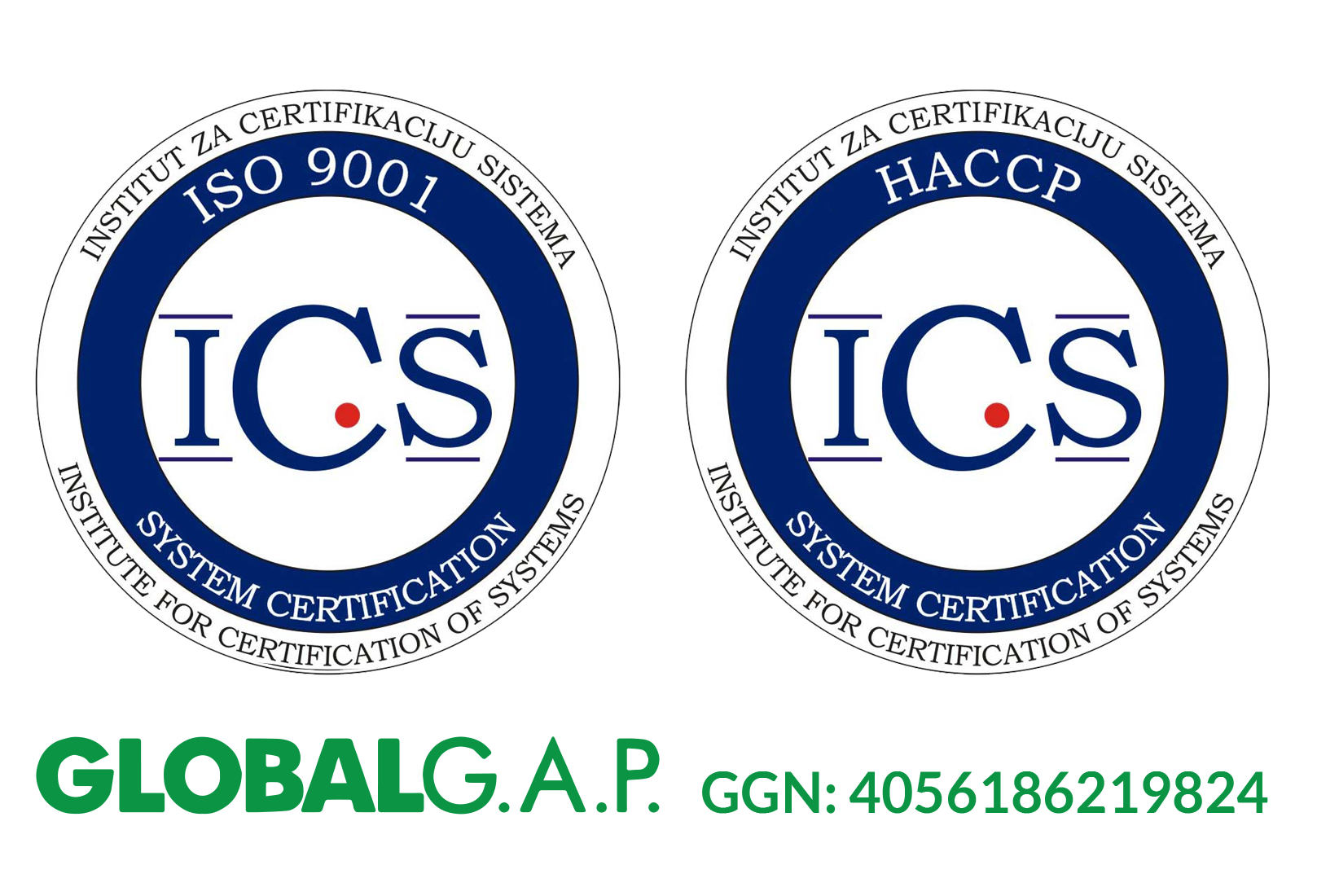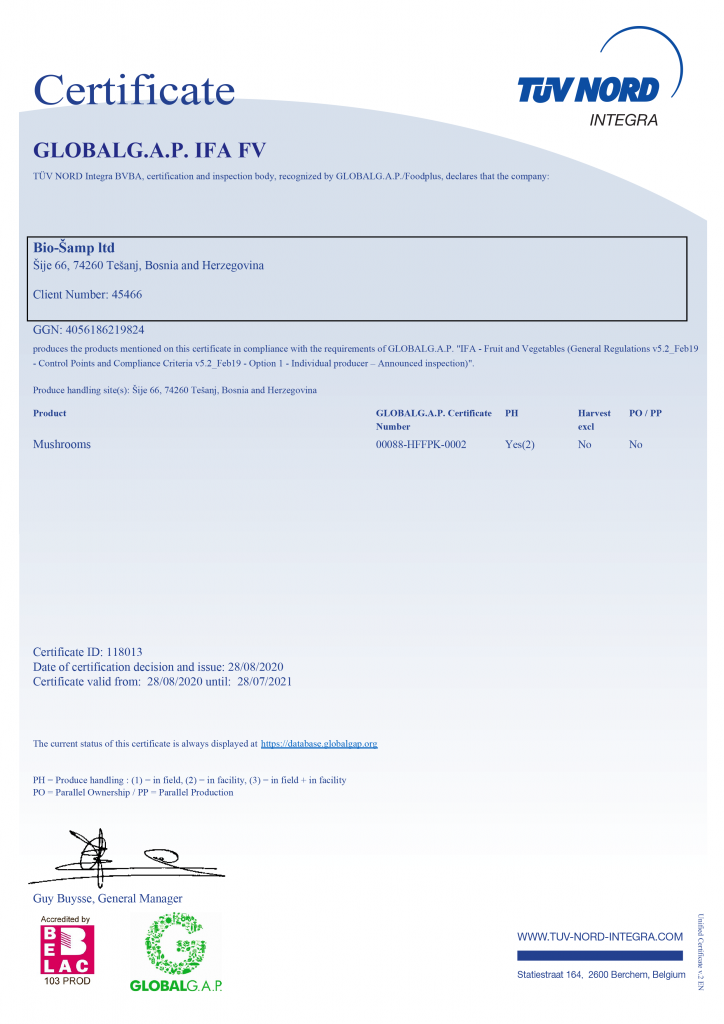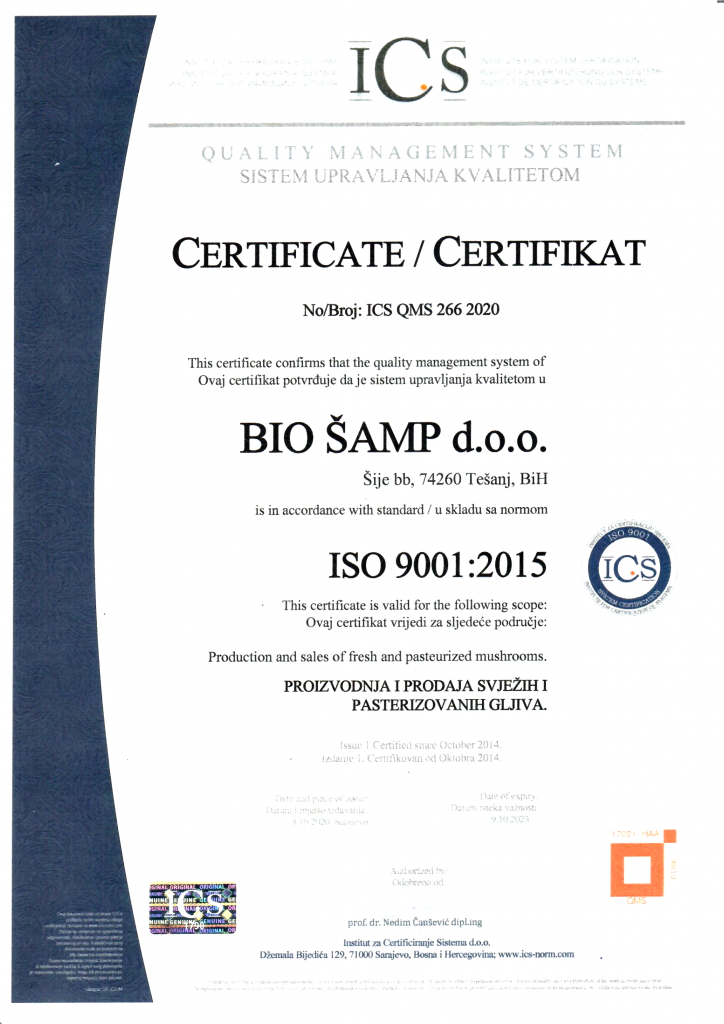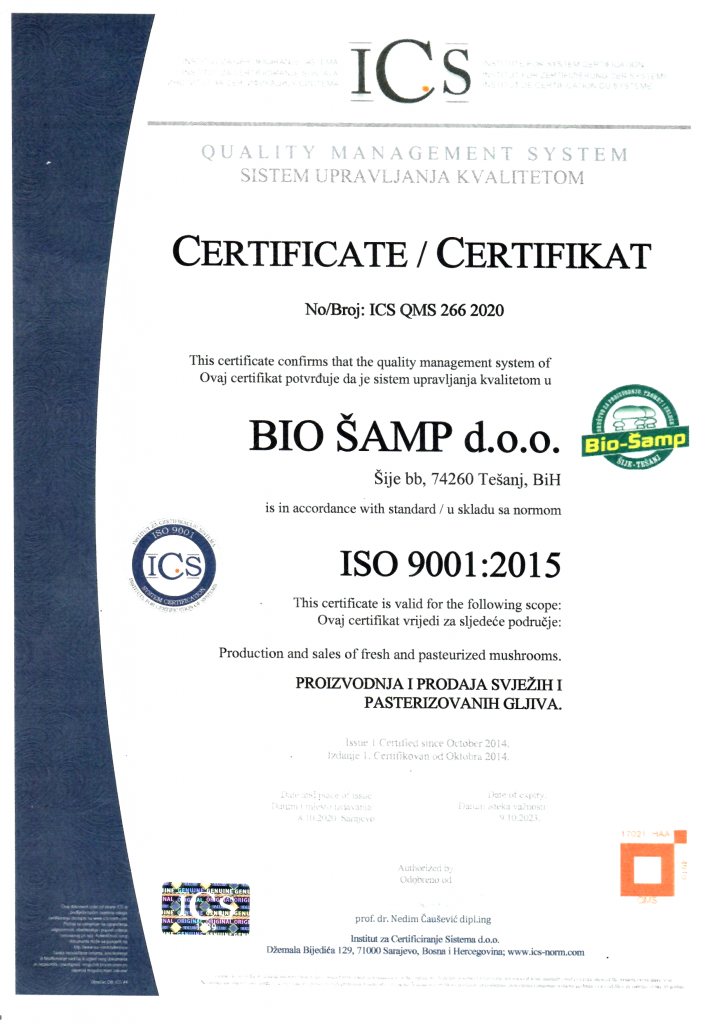The company Bio-Šamp d.o.o. has the following certificates:
- HACCP
- ISO 9001:2008
- GLOBAL G.A.P.
What is HACCP?
HACCP – HAZARD ANALYSIS CRITICAL CONTROL POINTS
HACCP is a food safety system based on the analysis and control of potential biological / microbiological, chemical and physical hazards to which raw materials are exposed, possible hazards during handling, production, distribution and consumption of the final product. Its application implies adherence to standard operating procedures and instructions that reduce food safety risks.
HACCP
- Establishes, assesses and controls hazards that could affect food safety,
- The system manages food quality and safety based on prevention,
- Every employee is informed about what, how, when and why to do in order to prevent food risks, but also their personal responsibilities in order for the end user to consume healthy and safe food.
Established hygiene practices are essential to monitor the situation throughout the food production chain, from primary production to the final product. Its application prevents contamination and provides an adequate food handling environment.
What is ISO 9001: 2008?
ISO 9001 - QUALITY MANAGEMENT SYSTEM |
For successful management and work of the organization, it is necessary to manage it in a systematic and transparent way. Success is much more certain as a result of implementing and maintaining a quality management system. ISO 9001 is the most widely used international standard that sets requirements for the establishment and maintenance of quality management systems, and is applicable to organizations of all types. It covers the basic processes within the organization (sales, development, procurement, production / provision of services, improvement,…), ensuring through the following actions that these processes are conducted in supervised conditions:
The quality management system according to the requirements of the ISO 9001 standard is used all over the world today, and the certification of this system is a generally accepted way of proving to the current and potential partner that the product or service will meet its quality requirements. A well-developed and maintained quality management system has a positive contribution to achieving business goals, improving:
|
What is GLOBALGAP?
GLOBALGAP - GLOBAL PARTNERSHIP FOR SAFE AND SUSTAINABLE AGRICULTURE
GLOBALGAP is an international commercial standard, which includes primary agricultural production and post-harvest activities. The standard is actually grounded as a guarantee to retail and consumers, that all possible measures and controls have been taken to make the product safe from a health aspect as well. The term commercial standard means that it was designed and introduced by large trading houses, which are involved in the trade of primary agricultural products, most often on behalf of the final consumer. This means that the standard is not legally regulated in any country, but is voluntary and mandatory for manufacturers who want to sell their products to trading houses. GLOBALGAP is currently required in most European retail networks.
Principles of the GLOBALGAP standard:
Supporting best available agricultural practices in food and feed production based on the need for sustainable agriculture. Long-term agricultural production can be sustainable if it meets the following conditions:
- production of high quality products in sufficient quantities,
- support for economically acceptable agricultural production,
- environmental protection and optimal use of natural energy resources,
- combining best available profitable practices,
- improving the living conditions of local communities.
Objectives of the GLOBALGAP standard:
- food safety by applying the HACCP principle,
- environmental protection,
- use of the principles of good agricultural practice,
- health and safety of employees and care for the social condition of employees,
- animal care where applicable




